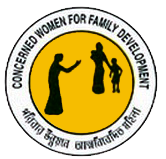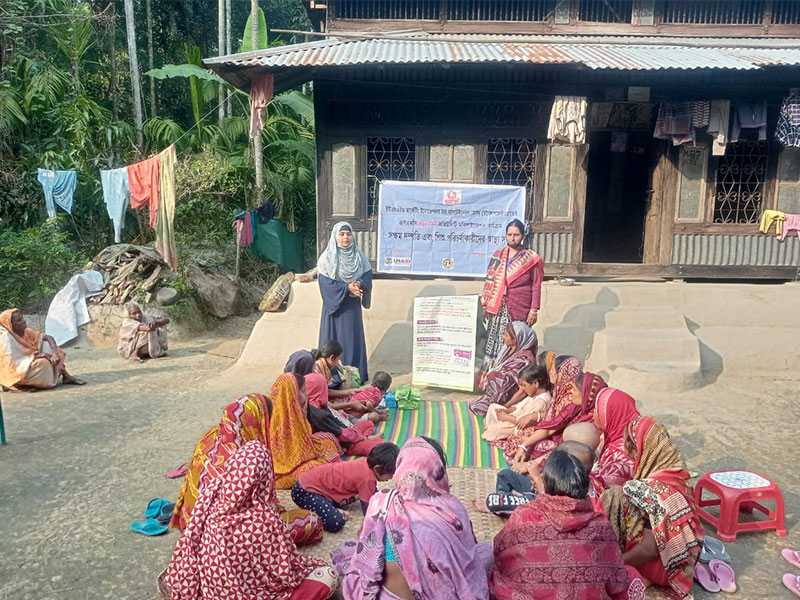Project Goal: To contribute to sustained improvements in the health status of women, children, and families in Bangladesh by increasing access to and
demand for essential health products and services using social marketing tools and concepts through the private sector.
Project duration: November 01, 2016 to September, 30, 2022
Project location and target beneficiaries:
| District | Name of Upazila | Number of Union | Population | Working with # of GSMs |
| Barishal | Babugonj |
6 |
146740 |
20 |
| Wajirpur |
9 |
234959 |
24 |
|
| Gournadi |
7 |
280517 |
24 |
|
| Madaripur | Rajoir |
11 |
237458 |
44 |
| Kalkini |
15 |
273258 |
41 |
|
| Faridpur | Bhanga |
12 |
232386 |
42 |
| Nagarkanda |
9 |
210883 |
30 |
|
| Pirojpur | Bhandaria |
6 |
164618 |
20 |
| Mathbaria |
11 |
262841 |
25 |
|
| Kawkhali |
5 |
70515 |
19 |
|
| Swarupkathi |
10 |
212232 |
26 |
|
| Jhalokathi | J. Sadar |
10 |
216348 |
27 |
| Nalchity |
10 |
214418 |
27 |
|
| Rajapur |
6 |
158180 |
19 |
|
| Kathalia |
6 |
124217 |
18 |
|
| Chandpur | Hajogonj |
11 |
330477 |
31 |
| Kachua |
12 |
180736 |
32 |
|
| Faridgonj |
15 |
396683 |
40 |
|
| Shahrasthi |
10 |
252511 |
31 |
|
|
181 |
4,200,004 |
540 |
||
Financial partner: USAID through Social Marketing Company (SMC)
Project brief: The project has been working towards achieving three intermediate results (IRs). As one of the consortium partners, CWFD is responsible to achieve intermediate result (IR) 2 by implementing Notun Din community mobilization program under the USAID MISHD project. The IR 2 is improved adoption of healthy behavior and practice by families and communities through effective BCC and media reaches. The project’s previous name was Marketing Innovation for Health (MIH) Project and MISHD project is continuation of the previous project.
The uniqueness of this project is CWFD focused on community mobilization activities and products selling through GSMs. In 19 Upazilas, 540 GSMs are working as volunteers of MISHD project. The project staff provide them training each month on the promotion of different health products like contraceptives, sanitary napkins, safe delivery kits, micro nutrition, and oral saline, sanitary napkin, diaper, pregnancy test device etc. Per union 4 GSMs are working motivating people to use the products. The project staff helps GSMs to procure the products from the Social Marketing Company. In return, the GSMs earn some profit for each sold product. The project is trying to develop marginalized women who are working as GSMs as small entrepreneurs in their communities. Project staff is dedicated and experienced to implement the project activities as well as provide cordial support to the GSMs to become successful entrepreneurs. They are known as “doctor apa” in their communities. The uniqueness of the project is a combination of social mobilization and social marketing.
Major Activities of this project:
-
Advocacy meeting at Union & Upazila Levels
-
Courtyard Meeting with MWRA and Caregivers
-
Interpersonal Communication (IPC) Session with Newlywed Couple
-
Meeting with School Management Committee (SMC)
-
Conduct Health Session with Adolescents at School, College and Madrasah
-
Conduct Monthly Meeting with GSMs for More Clear Product Detailing and Product Supply, Problem Solving and Practicing Business Profit Calculation
-
Coordination and Attending Coordination Meeting with Upazila and District Administration on Regular Basis


